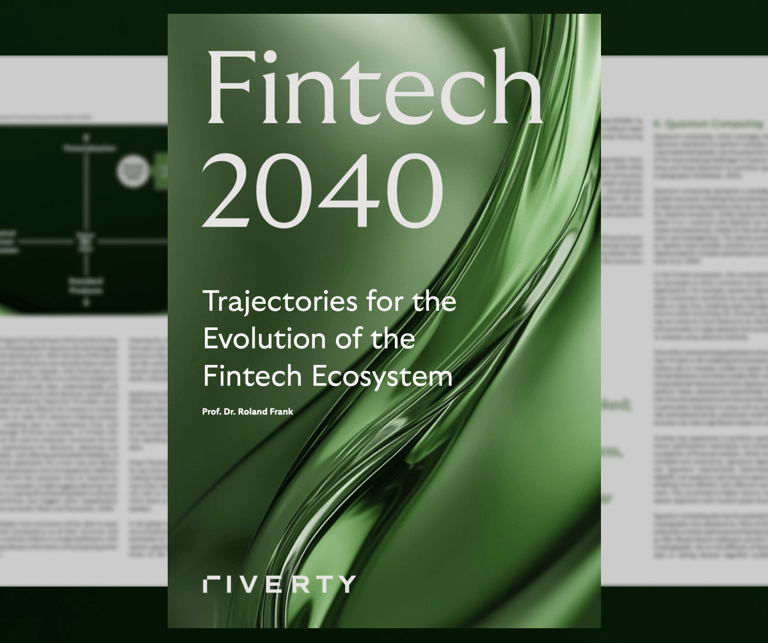Emotions will drive smarter money decisions: The power of emotionally intelligent finance
What if your next financial decision wasn’t just based on logic, but also on emotion? Welcome to emotional finance. In 2040, AI will factor in stress, excitement, even personal values to guide smarter, more balanced money choices. That’s emotionally intelligent finance.

By 2040, fintech won’t ignore emotions – it will listen to them. With AI capable of understanding stress, excitement, and sentiment, financial advice becomes more human, empathetic, and effective. Emotional finance recognizes that emotion is no longer a flaw in the system – it’s the missing signal that makes financial decisions truly smart.
Emotional finance: from noise to signal
Historically, emotions were treated as noise in finance – something to be filtered out or overcome. Traditional financial advice focused on cold logic: save X percent, invest in Y portfolio, stick to Z budget, regardless of how you feel.
But emotion-aware fintech sees feelings as vital data. When we understand that stress affects risk tolerance, excitement can lead to overspending, and anxiety impacts long-term planning, we can design systems that work with human nature instead of against it.
Emotional finance recognizes that sentiment, stress, and personal values don’t just influence financial behavior – they should actively shape smarter financial decisions.
How emotionally intelligent AI will guide financial decisions
The technology is becoming sophisticated enough to read emotional cues in real-time. Through biometric inputs like heart rate monitoring, tone analysis during voice interactions, and behavioral pattern recognition, AI can understand your emotional state and adapt its advice accordingly.
Consider these use cases: AI that prevents panic selling by detecting stress in your voice and suggesting a cooling-off period. Budgeting tools that recognize when you’re feeling overwhelmed and simplify their interface. Investment platforms that adjust risk recommendations based on your confidence level.
The hybrid model combines AI’s analytical power with human empathy, creating financial coaching that’s not just smart, but emotionally attuned to your needs.
Emotional intelligence reduces financial anxiety
One of the most powerful applications of emotional finance is reducing the anxiety that often surrounds money decisions. Financial interfaces can adapt their tone, timing, and nudges to match your mood.
Instead of generic alerts about overspending, imagine a system that recognizes you’re having a stressful week and offers gentle encouragement rather than judgment. Or investment advice that arrives when you’re feeling confident rather than during moments of uncertainty.
More empathetic interactions lead to greater trust, which leads to better financial outcomes. When people feel understood rather than judged by their financial tools, they’re more likely to engage honestly and follow through on positive behaviors.
Ethical imperatives for emotion-aware AI
Famously, with great power comes great responsibility. Emotional finance requires transparent emotion-tracking – systems must be opt-in, not hidden. Users need to understand exactly how their emotional data is being collected and used.
The risk of manipulation is real. AI that can read emotions could potentially exploit vulnerability or nudge users toward decisions that benefit the provider rather than the customer. This makes ethical design principles absolutely critical.
Emotion data is sensitive data, requiring new privacy protections and design principles that prioritize user welfare over engagement metrics.
The financial advisor of the future feels with you
Imagine an AI that pauses before recommending a loan, sensing stress in your voice and asking if you'd like to explore alternatives first. Or a financial assistant that notices you’re excited about a new investment opportunity and helps you channel that enthusiasm into a well-researched decision rather than an impulsive one.
This represents coaching that's not just smart, but emotionally intelligent – systems that understand money decisions happen in an emotional context and work to optimize both financial and emotional outcomes.
The future of financial advice isn’t just about having access to better data or more sophisticated algorithms, it’s about creating technology that understands the full human experience of managing money.
Building emotional intelligence into your financial stack
The opportunity is clear: build emotional finance capabilities into your financial products now. The companies that succeed in the next decade won’t just be those with the most features or the lowest fees – they’ll be the ones that truly understand their customers as complete human beings.
This means investing in emotion-detection technology, designing for empathy, and creating financial experiences that reduce stress rather than increase it.
At Riverty, we believe in human-centric financial solutions that promote inclusiveness and financial sustainability. Our approach to emotional finance ensures that technology serves to reduce financial anxiety while widening access to healthier financial habits for all users, regardless of their background or financial situation.
For insights into how invisible banking complements emotional finance, explore our related blog: Banking will disappear but not your money.
Shape the future of finance: Download the complete analysis
Download the Fintech 2040 Whitepaper to discover what's shaping the future of banking and how your organization can stay ahead of the disruption.

